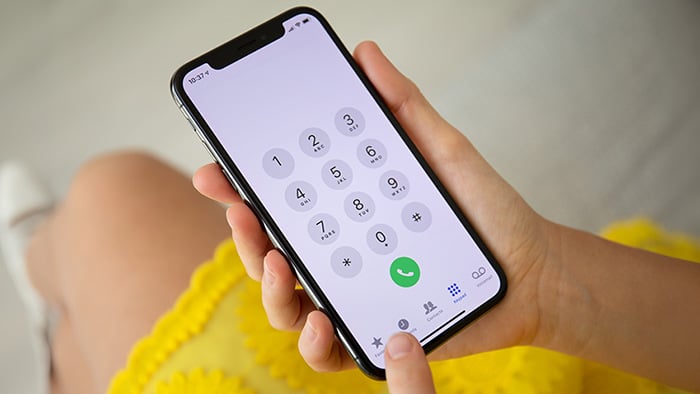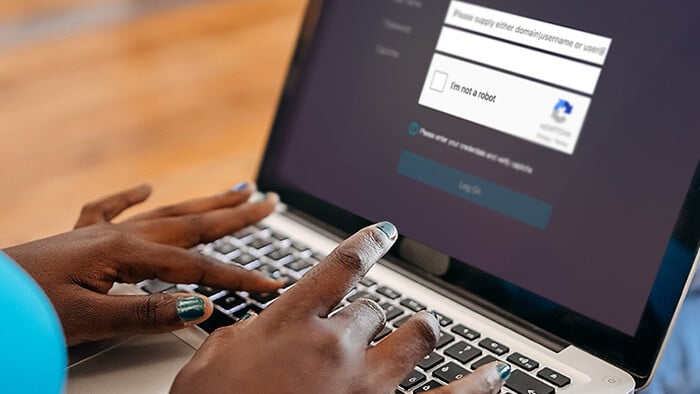What is internet safety?
Internet safety refers to the practices and strategies used to protect people from online theft, fraud, and other digital threats. Achieving internet safety involves a combination of factors, including installing security software, being aware of online rules and threats, following safe browsing practices, and practicing good digital hygiene like creating strong and unique passwords.
As technology becomes an increasing part of our everyday lives — from how we communicate to how we use basic appliances (Internet of Things) — staying safe online is crucial to ensuring we navigate the world safely. Though new internet technologies bring great benefits, they also give rise to new cyber threats. That means that online safety awareness is crucial to defend against threats such as malware, like viruses.
Unfortunately, most people don’t prioritize online protection. Figures and facts about internet safety paint a worrying picture:
-
In 2022, there was a reported 61% increase in phishing attacks.
-
50% of people reportedly use the same password for all of their accounts.
-
81% of company data breaches are apparently caused by poor passwords.
What are the dangers of the internet?
Dangers on the internet refer to anything that can harm a user — this can be financial, emotional, or physical.
What the experts say
"From Q4/2023 to Q2/2024, web threats have seen an approximate 17% increase in incidents compared to other cyber threats, underscoring a persistent and troubling upward trend."
Here are examples of common digital safety threats:
Help look after your personal safety online by using security software like Avast One on all your devices. And remember that Macs can get viruses, and phones can get malware, too.
Internet safety tips for parents and kids
The most important internet safety tip for kids is to never share any personal information, including passwords, home or school addresses, birthdays, or even pet names.
Here are more cyber safety rules and guidelines for interacting online:
Don’t post personal photos publicly
Photos can give away personal details about children, like where they live and where they go to school. Photos can also reveal hobbies and interests, which can be used to manipulate them.
Use screen names
Cybercriminals can gather a lot of information about a person from their name. Make sure your kids always use a screen name (never their own), and it shouldn’t include any personal details like their date of birth.
Be careful with online ads
Teach your kids to be careful before clicking online ads. To avoid temptation, download Avast Secure Browser for free, which blocks ads and helps prevent web tracking.
Don’t respond to messages from strangers
Teach your kids to message only people they know online. Strangers can lie about their age, gender, and other significant details.
Report cyberbullying
Cyberbullying is one of the scariest internet safety topics for parents. Encourage your kids to speak up if they get bullied online.
 Cyberbullying can be particularly dangerous to young people.
Cyberbullying can be particularly dangerous to young people.
Set up parental controls
The safest kids' phones come with parental controls for added protection. Find out how to set up parental controls on Android devices or learn about iPhone or iPad parental controls. And talk to children about how parental controls can help them use their devices responsibly.
Internet safety tips for adults
The number of potential threats to your personal online security seems to grow every year. Here are the principal rules for staying safe on the internet:
Don’t reuse passwords
To avoid compromising all your accounts and profiles, create a unique password for each one. Learn how to create strong passwords and choose the best password manager to keep track of them all.
Don’t open attachments from unknown sources
Email attachments are commonly used to deliver malware that attacks your device or steals your data. Unless it’s from a trusted source, don’t open or download an attachment.
 Before downloading or opening attachments, verify the source.
Before downloading or opening attachments, verify the source.
Check the source of emails before clicking links
Fake emails can link out to unsafe websites. Before clicking on a link, verify the email is legitimate. Signs of scam emails include spelling mistakes and generic greetings. You should always report an internet scam if you spot one.
Review privacy settings and data policies
Personal information can be valuable to marketers and different types of hackers. Keep your data private by reviewing the privacy settings and data policies of the apps and services you use.
Internet safety tips when traveling
Traveling to a new destination is great, but using untrusted Wi-Fi is risky. Here’s how to safely browse the internet while traveling:
Use a VPN
A VPN is a tool that encrypts your internet connection, helping to keep hackers away and prevent data brokers from accessing your data.
Install Avast SecureLine VPN and fire it up whenever you’re traveling and using public Wi-Fi.

Be careful connecting to free Wi-Fi hotspots
Free Wi-Fi connections are usually unencrypted, which means that hackers can see what you're doing online. Use a VPN to protect your connection whenever you're using a free Wi-Fi hotspot.
Internet safety tips for students
The internet offers great educational resources, as well as platforms for socializing and learning more about other people. But along with the benefits come pitfalls that could affect your personal or academic life.
Stay safe online with these internet safety tips for students:
Double-check online information
Just because you read it online, doesn’t mean it’s true. Always verify facts and figures by cross-referencing them on other sites or with other sources. Just because you read something online doesn’t mean it’s true.
Be careful who you meet
Fake social media profiles can be hard to identify, so beware of strangers contacting you online. Never reveal any personal information, and be cautious if someone asks you to reveal sensitive details.
Avoid oversharing
Think twice about what you're sharing or posting online about yourself. The more you keep offline or private, the more likely you can prevent identity theft.
 Be careful what you share online, especially with strangers.
Be careful what you share online, especially with strangers.
Internet safety tips for everyone
Prioritizing internet browsing security will ensure that your device and data remain secure. Although hackers often target specific groups for scams, there are some universal tips on how to be safe online.
Here’s our top 10 list of internet safety rules and tips for everyone:
-
Check that sites are secure
Check that websites you visit have an SSL certificate and use the “https” security protocol, which is encrypted (“http” isn’t). This is just one step that can help prevent scams like spoofing.
-
Install the latest software updates
Hackers are constantly finding new attack vectors. The latest software updates for your device and apps will help patch security risks and vulnerabilities.
-
Back up your data
In the event of a malware attack or device failure, you may have to wipe your device. Having a backup of your data on an external storage device and cloud storage can be a lifesaver.
-
Watch what you post
The information you share online can be used against you or enable someone to steal your identity. Stay safe on the internet by withholding key details about yourself.
-
Be aware of fake news
Fake news sites may steal personal information or spread malware. Pay attention to the spelling of URLs — these sites often use “typosquatting,” where a domain looks virtually the same as a legitimate brand, perhaps with one extra letter.
-
Use a password manager
It’s difficult to keep track of so many passwords, but don’t compromise by simplifying them. Use a password manager to update and store your account login credentials.
-
Use 2FA
With two-factor authentication (2FA), you use two methods to log in to an account. If your password is ever stolen, your 2FA-protected account will remain secure and private.
-
Use a VPN
If you’re still asking yourself, “do I need a VPN?” — the answer is yes! A VPN ensures your anonymity by hiding your IP address and activity.
-
Use a reliable antivirus
Is Windows Defender enough to protect your device? In some cases, maybe. But nothing compares to modern antivirus programs that are updated to defend against the latest threats.
-
Avoid suspicious attachments or links
Unsafe links and attachments can lead to data theft or malware. Fake emails or malicious websites can appear very convincing, so think twice before clicking.
Following internet safety best practices and using good digital hygiene will help protect you against threats. If you think your personal details or credentials may already have leaked online, use a hack check tool to find out and change your passwords accordingly.
Quick wins
Safe internet practices don't have to take a lot of time. Although the best approach is to tailor a security strategy based on your online activity, the basic rules of the internet apply to all. Keep this list of online safety tips handy:
-
Create strong, unique passwords for your accounts.
-
Use 2FA.
-
Don't overshare on social media.
-
Be careful when using public Wi-Fi.
-
Install reliable antivirus software.
-
Enable security features on your devices and accounts.
-
Close unused accounts.
-
Install a firewall to protect your network and devices.
-
Use our free VPN on your PC and all your devices
Protect yourself with ironclad online security
Proper internet safety requires a multi-faceted approach. Avast One offers comprehensive protection for today’s complex digital world. Along with a powerful anti-malware engine, it has a built-in VPN to encrypt your connection. Install Avast One today — completely free.



 Cyberbullying can be particularly dangerous to young people.
Cyberbullying can be particularly dangerous to young people. Before downloading or opening attachments, verify the source.
Before downloading or opening attachments, verify the source.
 Be careful what you share online, especially with strangers.
Be careful what you share online, especially with strangers.










